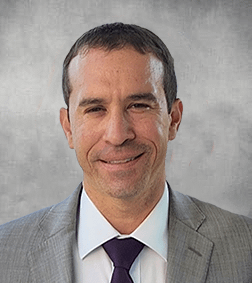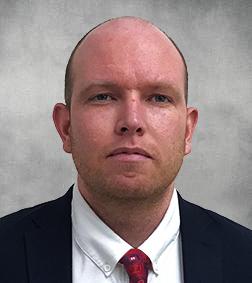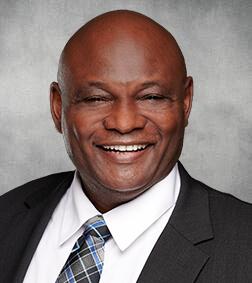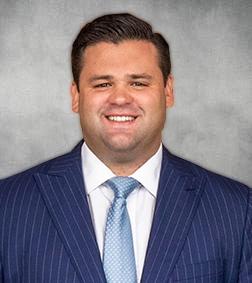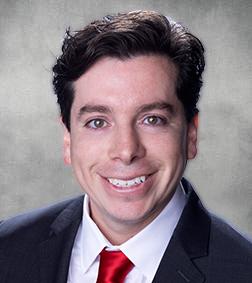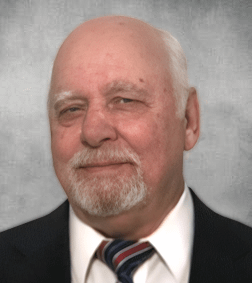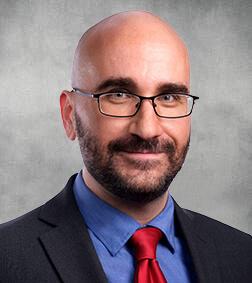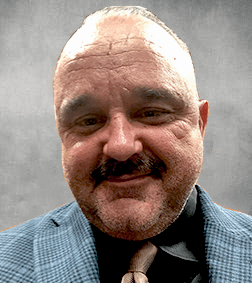TRAFFIC VIOLATIONS LAWYERS IN FLORIDA
Need to Fight a Traffic Ticket? Call (888) 484-5057
Too often, individuals treat traffic offenses as a minor violation. They choose to simply pay the fine to avoid further hassles. However, a traffic offense can lead to marks on your driving record, traffic school, an increase in your insurance, and more. If left unaddressed, a traffic violation can end up costing you thousands, the loss of your driver’s license, and can lead to imprisonment. Furthermore, the conviction shows up on your permanent record and can affect your future employment options, school admissions, and more. Protect yourself with the help of our Florida traffic offense attorneys. If you were given a ticket or arrested for reckless driving, call (888) 484-5057!
Aggressive Advocacy for Your Best Interests
Our criminal defense attorneys at Musca Law have decades of combined experience helping individuals who find themselves on the wrong side of the law. We understand the complex laws in Florida revolving around traffic violations. Allow us to use our skills and knowledge to help you.
We handle a variety of traffic offenses, including:
- Moving violations
- Reckless driving
- Suspended licenses
- Driving under the influence
- Failing to stop
- Driving without a license
- DUI manslaughter
- Hit-and-run
Traffic offenses come with varying degrees of consequences. If you are charged with an offense, it is important to obtain qualified legal representation. The prosecution will be constructing their case against you. Don’t let them win.
Involvement in a Motor Vehicle Crash Resulting in Injuries and/or Death
Florida Statute Title XXIII Chapter316.062 dictates that any driver who is involved in an accident and/or is responsible for causing such a crash must remain at the scene and provide any assistance that is required. He/she must also render medical aid to the victim(s) if necessary and be prepared to share information with the victims and law enforcement officials.
As indicated in Florida State Title XXIII Chapter 316.027(2)(a-e), motorists must stop their vehicle at the site or in any area within close range of the site in order to meet this requirement.
Any person who fails to render aid and/or flees the scene may be punished in one of the following ways, depending on the severity of the crash and previous violations:
- Chapter 316.027(2a): Any driver who is involved in a motor vehicle accident in which a victim has sustained non-life-threatening injuries must remain at or close to the crash site. Anyone who violates this law will be charged with a 3rd-degree felony, punishable by a $5,000 fine and/or a prison sentence that does not exceed 5 years.
- Chapter 316.027(2b): Any driver who is involved in a motor vehicle accident in which a victim has suffered severe injuries must remain at or close to the crash site. Anyone who fails to comply with this law will be charged with a 2nd-degree felony, punishable by a $10,000 fine and/or prison time that does not exceed 15 years.
- Chapter 316.027(2c): Any driver who is involved in an accident resulting in the death of a victim must remain at the scene and comply with law enforcement officials. Anyone who fails to comply with this law will be charged with a 1st-degree felony, punishable by $10,000 and/or a prison sentence that does not exceed 30 years. Any culprit who has previously been charged with fleeing the scene of a crime will be detained until arresting officers arrive at the scene.
Under Chapter 316.027(2d), if a driver violates sections 2a, b, or c, he or she will be required to make restitution to the victims or members of the victims’ families for the damages and/or losses suffered during the accident. Furthermore, the court shall order the suspension of the culprit’s driver’s license for a period of 3 years (with a potential for reinstatement, in the event that no other violations are committed).
Involvement in a Motor Vehicle Crash Resulting in Damages to a Vehicle and/or Property
As dictated by Title XXIII Chapter 316.061(1-3), any driver is involved in a crash that results in damages to vehicles and/or pieces of personal property (e.g. homes, garage units) is required to remain at the scene of the accident. If he/she fails to comply with this law, the culprit will be charged with a 2nd-degree misdemeanor, punishable by a $500 fine and/or imprisonment that does not exceed 60 days. Aside from the provisions listed in the Statutes, the culprit may be charged an additional $5 fine, which will be sent to the Emergency Medical Services Trust Fund.
As Chapter 316.061(2) states, all stops must be made without blocking oncoming traffic (as little as what is required for the convenience of the officers), and the responsible party must make an effort to move his/her vehicle as far out of the way of traffic as possible. Anyone who fails to comply with this rule will be charged with a nonmoving traffic violation.
Although law enforcement officials are tasked with removing vehicles from the roadways, keep in mind that drivers who are responsible for the crash will not be punished if they aid in removing their vehicles (or another motor vehicle) from the roadway for the convenience of the investigation.
Failure to Comply with Traffic Control Signals
As dictated by Florida Statute Title XXIII Chapter 316.075 (4), any driver who fails to comply with traffic control signals and/or pedestrian control signs (those designed for foot traffic) will be charged with either a pedestrian violation or a vehicle infraction (due to the operation of a vehicle during the crash).
For more information about traffic signals, please review Chapter 316.075(1-3).
Recklessly Driving and Failing to Comply with Related Laws
Florida Statute Title XXIII Chapter 316.082 (1-3) dictates that all motorists are to pass each other toward the right-hand side and provide one-half of the lane width as a courtesy to the drive being passed. A failure to comply with this law will result in charges of a noncriminal traffic infraction (as indicated in Chapter 318). Keep in mind that Chapter 316.085 clearly states that drivers cannot make a pass until he/she has determined that another vehicle is not approaching or attempting to pass that vehicle and that this action can be completed safely (for both drivers involved). Reckless driving charges and the label of “habitual traffic offender” can seriously affect people’s lives in Florida.
Following a Vehicle Too Closely
As dictated by Florida Statute Title XXIII Chapter 316.0895 (1-2), drivers of motor vehicles are not permitted to tail a vehicle within an unsafe range, further showing complete regard for the speed of vehicles and traffic along all major roadways. Under the same code, the operators of trucks towing trailers or equipment are not permitted to follow within at least 300 feet of another vehicle pulling the same materials. (In this case, trucks towing trailers cannot overtake trucks in opposing lanes.)
Any driver who fails to comply with this law will be charged with a noncriminal traffic infraction, punishable as a moving violation (outlined in Chapter 318).
Driving Recklessly
As dictated by Florida Statute Title XXIII Chapter 316.192 (1a), any person who drives recklessly and carelessly without showing any regard for other motorists and/or property will be found guilty of committing an act of reckless driving. Ultimately, anyone who commits a crime of this nature shall be punished in one of two ways, depending on the severity of the crime:
- 1st Conviction: The culprit will be sent to prison for no longer than 90 days and/or have to pay a fine that is at least $25 and does not exceed $500.
- 2nd Conviction (or additional convictions): The culprit will be sent to prison for no longer than 6 months and/or have to pay a fine that is at least $50 and does not exceed $1,000.
If a driver inflicts bodily harm on a victim and/or damages property, he will be charged with a 3rd-degree felony, punishable by a prison sentence of 5 years and/or a fine that does not exceed $5,000.
Driving under the Influence of Drugs
Florida Statute Title XXIII Chapter 316.193 dictates that any individual who is operating a vehicle while he/she is under the influence of alcohol or any other prohibited substances (listed in Chapter 877.111 or 893) that impair faculties will be charged with a DUI. Depending on how many offenses the driver had previously committed, he/she will face one of several forms of punishment:
- 1st Conviction: prison time of 6 months and/or a fine of no less than $500 and no more than $1,000
- 2nd Conviction: prison time of 9 months and/or a fine of no less than $1,000 and not greater than $2,000.
Anyone who commits a 3rd DUI conviction will be charged with a 3rd-degree felony, punishable by a $5,000 fine and/or prison time that does not exceed 5 years. If the conviction occurs 10 or more years after the first conviction, the individual will be sent to prison for 12 months and pay a fine of $2,000-$5,000.
Fourth or additional violations of this law will result in charges of a 3rd degree felony, but the fine will not be less than $2,000.
Using a Suspended or Revoked Driver’s License
Florida Statute Title XXIII Chapter 322.32 dictates that any display or intention to display a driver’s license that has previously been suspended, revoked, or cancelled (during which the driver is fully knowledgeable of the invalid nature of this license) will result in charges of a 2nd-degree misdemeanor, punishable with a fine of $500 and/or prison time that does not exceed 60 days.
Here are the criteria that will determine if a person has committed this crime:
- The court has previously suspended or revoked the culprit’s driver’s license.
- The culprit was fully aware that this license was previously suspended or received notice of this cancellation.
Any attempts to lend this license to another person is completely forbidden by law.
Committing an Act of Vehicular Homicide
As defined in Florida Statute Title XLVI Chapter 782.071, vehicular homicide takes place when a person has killed another human being (or the unborn child by inflicting an injury to its mother) while operating a motor vehicle in a dangerous way (which could ultimately cause the death of another person). People who kill a person in a vehicular accident can be punished in one of the following ways:
- A 2nd-degree felony, punishable by a fine of $10,000 and/or a prison sentence that does not exceed 15 years.
- A 1st-degree felony, punishable by a fine of $10,000-$15,000 and/or a prison sentence that is either 30 years to life.
Keep in mind that the person will be punished under the circumstances that he/she should have known the accident occurred and/or failed to render aid to the victim(s) during the crash.
Besides the aforementioned forms of punishment, the court may order the culprit(s) to complete 120 hours of community service in trauma centers or hospitals that frequently admit victims of vehicular accidents. These activities will be supervised by registered nurses, ER doctors, or other medical technicians who are registered to work with these community programs.
Also, Florida Statute Title XLVI Chapter 782.09 defines the killing of a child by inflicting injury on the mother (a form of vehicular manslaughter) as “murder” of the 1st, 2nd, or 3rd degree (depending on the severity of the crime).
Determining a Valid Case for Vehicular Homicide
As indicated by the Florida Statutes, Chapter XLVI, § 782.071 or § 782.072, instructions listed for members of a Criminal Jury highlighted in Case 7.9, members of the court must prove (without any shred of doubt) that:
- The victim died.
- An unborn child died due to its mother’s injuries.
- A vehicle was the instrument of death.
- The defendant was reckless.
Qualified Traffic Offense Lawyers You Can Trust
Our legal team at Musca Law are not afraid to go head to head with the prosecution. We plan each case as if it were going to trial. For us, you are more than just a case number. We take the time to understand your situation to best help you. We have helped numerous clients reduce their traffic offenses or have them dropped altogether.










